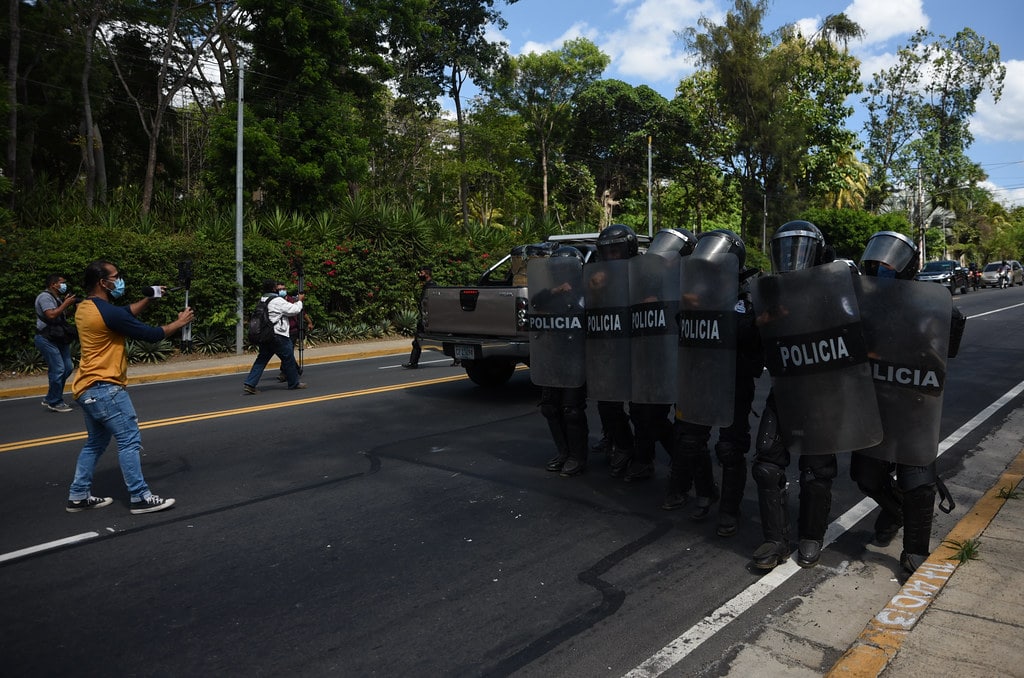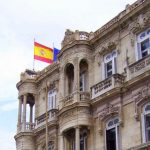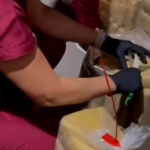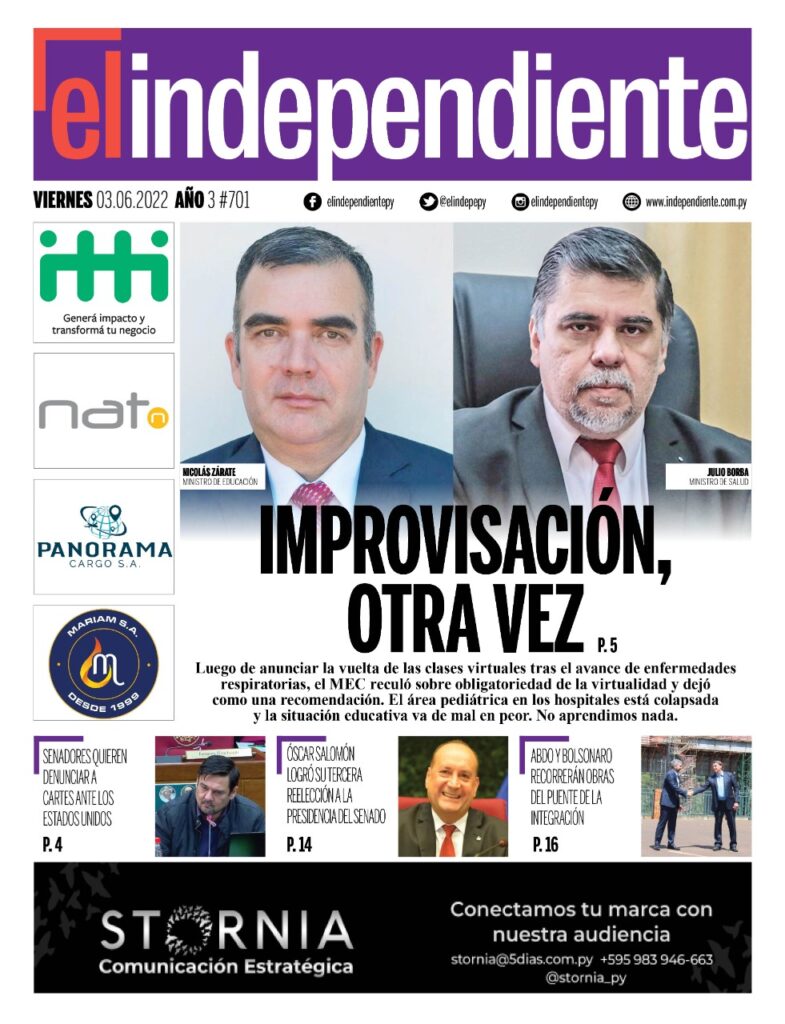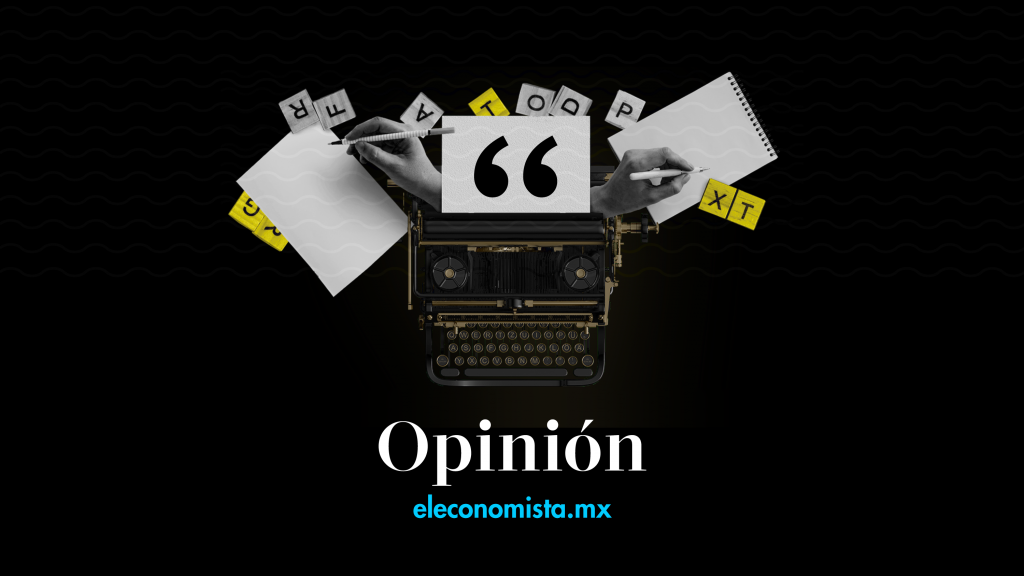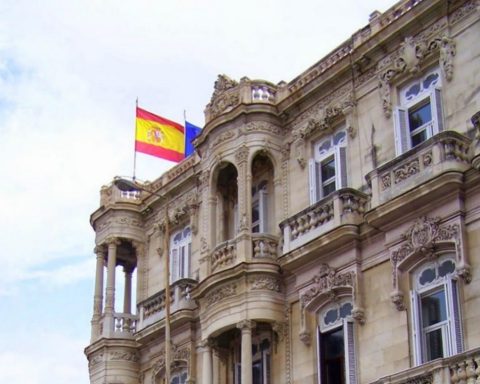The Inter-American Commission on Human Rights (IACHR) affirms in its annual report 2021 that In Nicaragua, the “serious political, social and human rights crisis” continues to deepen due, among other factors, to the “de facto installation of a state of exception in the country, as well as the prolonged weakening of democratic institutions” due to the concentration of power by Daniel Ortega and Rosario Murillo.
“At the same time, the Nicaraguan population continues to be affected by the installation of a police state that enables permanent coordination between the National Police and groups sympathetic to the Government to attack, monitor, threaten and harass any person identified as an opponent,” indicates the chapter dedicated to Nicaragua.
The IACHR dedicated special chapters to the States of Nicaragua, Cuba, VenezuelaY Guatemala“because in these countries serious violations of human rights and attacks on democratic institutions are observed.”
The document recalls that, in the case of Nicaragua, the IACHR “confirmed” that “the principle of separation of powers that governs the democratic rule of law was broken” because “the different functions of the State do not correspond to separate, independent and balanced with each other”.
“All powers are aligned and directed by the Executive, so they do not represent limits to the exercise of power or prevent arbitrariness; on the contrary, they facilitate or consolidate them”, regrets the organization.
impunity continues
The IACHR, attached to the Organization of American States (OAS), points out that “a context of widespread impunity persists regarding the serious human rights violations committed in the framework of state repression”, which began in 2018, which led to the death of 355 people, more than 2,000 people injured, 1,614 people arrested, hundreds of arbitrary dismissals of health professionals and more than 150 unjustified expulsions of university students.
It also recalls that according to data recorded by the UNHCR, more than 110,000 people have been forced to flee Nicaragua and seek asylum due to persecution and human rights violations.
He mentions that the voting in November of last year “represented for Nicaraguan society the possibility of beginning a transitional period to achieve the reestablishment of the rule of law and democracy,” but ended in the intensification of a new stage of repression, which had the effect of “ending the participation of the opposition even before the general elections are held”.
The report highlights that both the climate of repression and the closure of democratic spaces, as well as the arbitrary detention of all the people who publicly expressed their interest in participating as candidates, showed “the will of the current Government to perpetuate itself indefinitely. in power, as well as to maintain their privileges and immunities, in a context of corruption, electoral fraud and structural impunity”.
It emphasizes that in most cases “the manipulation of criminal law, the lack of independence of the justice system, patterns of violations of due process, the right to defense of detained persons and the complete lack of effectiveness of the resources of personal display”.
Attacks against the press and mismanagement of the pandemic
Both the IACHR and its Office of the Special Rapporteur for Freedom of Expression (RELE) warn that the situation of the right to freedom of expression in Nicaragua “continued to deteriorate rapidly due to the” persistence of stigmatizing statements from the highest authorities of the State against the independent press.
In addition to the arbitrary arrests and legal proceedings “without guarantees of due process against journalists and people who speak out critically”; restrictions on social protest; the inability of the press to cover official events; the lack of active transparency of the State and the restrictions on freedom of expression in the digital space.
While the Office of the Special Rapporteur on Economic, Social, Cultural and Environmental Rights (SRESCER) together with the IACHR expressed their concern “about the continued negligent handling of the covid-19 pandemic and its impact on the right to health of the Nicaraguan population ”.
They also managed to verify “the serious situation of health personnel due to the intensification of persecution, harassment, attacks, as well as the use of intimidating practices through the use of criminal, labor or administrative law against them, which would have the effect of silencing or instill fear in members of the medical and health union identified as opponents of the Government.”
The document also highlights that they were able to observe that the indigenous and Afro-descendant communities of the Caribbean Coast of Nicaragua “continue to face a situation of generalized violence due to invasions by settlers and third parties in their ancestral territories, who would act with the acquiescence and tolerance of the State. and the incentive of the private sector”.
As a result of these events, in 2021, at least 13 indigenous people would have been killed and eight seriously injured.
Express rejection of the Government
The IACHR indicates that on November 23, 2021, it transmitted to the State of Nicaragua “a preliminary copy of the report and asked it to present its observations within a period of one month. Two days later, the Government communicated its “total rejection” of the document “because it constituted a reckless and offensive compilation of false, distorted and manipulated facts.”
The Government of Ortega and Murillo accuse the organization of using “adverse political sectors as the only source” that “do not reflect the national reality and whose sole objective is to continue the campaign of discredit and defamation against the Nicaraguan State, to continue specifying the list of aggressions that the North American empire has been skilfully plotting”.
“These reports do not deserve any observation (on our part) because they constitute a systematized compilation of the lies that have been repeated against the Government and have never taken into account the objective and palpable information that our State has provided, on the progress made in the recognition and vindication of rights in favor of our people”, insists the response.
